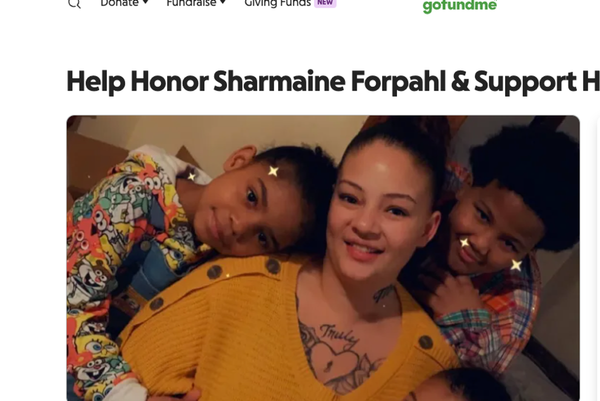
Treasurer Josh Frydenberg says his plan to tackle Australia’s worst recession since World War II will likely be based on $158 billion in tax cuts, $10 billion on infrastructure spending, and industrial relations reform. The government also plans to end the Coronavirus Supplement in December and phase out the JobKeeper program over the next six months.
Not only do these plans give to rich men with one hand and take from poor women with the other, they also simply won’t work to repair an economy that still hasn’t felt the full effect of the COVID-19 body blow.
Modelling by Australia Institute showed bringing forward the tax cuts will give more than 80 percent of the benefit to the top 20 percent of earners, while doing almost nothing for people on the lowest incomes.
If we take a gendered look at the Australia Institute findings, almost 75 percent of those benefits at the top end will go to men. Women are over-represented in the low-income brackets where tax cuts will deliver no benefits.

This is pretty much the same result the Australia Institute found on their gender comparison of the planned tax cuts. Men receive almost double the benefit that women get from the proposed tax cuts.
Tax cuts have to be funded from somewhere. If the government is planning on reducing tax revenue by $158 billion, it would have to either borrow money or reduce spending. The gross national debt is already expected to reach $852 billion (45 percent of GDP) in 2021 so borrowing large amounts seems less likely than cuts to spending.
Which brings us to yet another Australia Institute report (I have no connection with AI, they’re just one of the few places producing robust, timely research on gendered economics). Their analysis of the 2014 budget showed spending cuts, yet again, disproportionately affected women.
In addition to the normal budgetary spending cuts, women will also be hugely disadvantaged when the coronavirus supplement drops at the end of this month then vanishes at the end of the year.
According to the Australian Bureau of Statistics, just over one million men and just under 1.5 million women are currently receiving the Coronavirus Supplement of $550 per fortnight (this includes people on JobSeeker, Youth Allowance, Sickness Allowance and Parenting Payment, among others).

The Supplement will fall from $550 to $250 per fortnight on 24th September and, as far as we know at the moment, will disappear altogether on 31st December. Added to that, JobKeeper will reduce to $1,000 (full time) and $650 (part time) per fortnight at the end of September and finish in March next year. Australian National University modelling says these changes will push an additional 740,000 people into poverty.
Women in Australia are already more likely to live in poverty, with victims of domestic violence, sole parents, older women, CALD women, First Nations women and women with disabilities all at significantly higher risk. Those groups are also the ones most likely to be affected by the removal of the Coronavirus Supplement.
The stubbornly persistent gender pay gap still sits at around 40 percent in real terms, and combined with women doing almost three times as much unpaid labour as men, the cumulative effect on older women is making women over 55 the fastest growing group of homeless people in the country.
Last week the National Press Club held an address on Rebuilding from Crisis: the economic and social case for household and business certainty. The speakers were Dr Cassandra Goldie, CEO of the Australian Council of Social Service (ACOSS), Chris Richardson from Deloitte Access Economics and Paul Zahra, CEO of the Australian Retailers Association.
Dr Goldie from ACOSS should be expected to speak on behalf of disadvantaged people, but Deloitte and the ARA are not known for their bleeding-heart, lefty leanings. Nonetheless, both Richardson and Zahra were blisteringly clear on their support for permanent increase in unemployment benefits as a means of speeding up economic recovery. They both made the point that poorer people spend most of their income and they tend to spend it on local retailers. Rich people are more likely to save, invest or spend on high end items like imported cars and clothes. Zahra said that his data shows cutting the unemployment benefits to pre-COVID rate will rip 130,000 jobs out of the retail sector. All three speakers were united in their distinct lack of enthusiasm about the proposed tax cuts as a means of beating the recession.
Their opinions are shared by Adam Triggs - Director of Research at the Asian Bureau of Economic Research at ANU, Callam Pickering – economist at APAC, the Lowy Institute and Danielle Wood - Chief Executive of the Grattan Institute among others.
It’s difficult to understand who is advocating for tax cuts. It’s a permanent measure - as opposed to stimulus spending, which is not expected to continue in perpetuity. The aging population, increased likelihood of bushfire, droughts and extreme weather events and the COVID induced global economic downturn are all going to require increased spending in coming years and cause interrupted tax revenue. Clawing back tax cuts in the future will be much more difficult than deciding against implementing them in the current crisis.
Taking $158 billion out of the national revenue and giving most of it to rich men while taking income from poor women is going to hinder our efforts at economic recovery, cause increased misery and danger for women, and put millions more jobs at risk. Such a move has little support, much opposition and no benefit.
What possible reason could they have for pushing ahead with it?
Jane Gilmore was the founding editor of The King’s Tribune. She is now a freelance journalist and author, with a particular interest in feminism, media and data journalism and has written for The Guardian, The Sydney Morning Herald, The Age, The Daily Telegraph, The Saturday Paper and Meanjin, among many others. Jane has a Master of Journalism from the University of Melbourne, and her book FixedIt: Violence and the Representation of Women in the Media was published by Penguin Random House in 2019.
Support quality journalism.
As an inkl member you can directly support the work of journalists like Jane Gilmore, while also getting access to 100+ publications like Foreign Affairs, The Independent, The Economist, Financial Times and Bloomberg.
As part of our commitment to building a sustainable future for journalism, a portion of your monthly inkl membership fee will go directly to Jane for as long as you remain a subscriber.
BECOME A MEMBER






